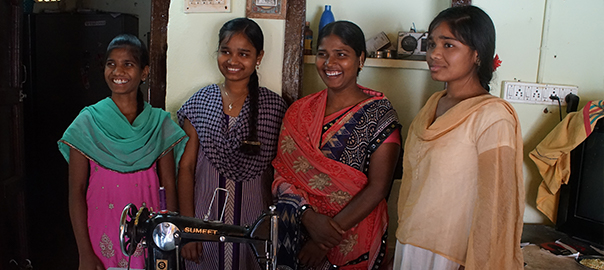I had the opportunity to visit India a few months ago. While I was there, I met and talked with a widow named Nagamani. She was young—I’m guessing under thirty. Yet when she lost her husband, she felt her life was over. She told us she used to think about suicide constantly.
The problem wasn’t only grief. Nagamani was raised to believe that her only value—her only life option, really—and her source of security was as a wife and mother. When her husband died, she was essentially booted out of his family. She had no way to provide for herself and her children, no safety nets, and no hope for the future. Death felt preferable to a long life of worthlessness and watching her children suffer.
Unfortunately, Nagamani is far from alone. We’ve encountered many widows in other parts of the Majority World whose stories are similar to Nagamani’s. In fact, there are about 38 million women like Nagamani—women who were already materially poor and socially vulnerable, for whom widowhood has left them in a desperate situation.
Girls and women in many countries start out at a disadvantage. They are commonly considered men’s property (first their father’s and then their husband’s). They are far less likely to receive an education past elementary school. In many places, they have no inheritance rights and few job opportunities. Child marriage is sadly common, where girls are married off to much older men. Girls and women are often trafficked or prostitute themselves because they don’t see other options. The list goes on. At the loss of a husband, all these injustices come crashing down on a woman, young or old. After all, what becomes of ‘property’ when its owner passes? Unless it is especially valuable (not the way much of the world sees women), it is useless. Rubbish. Thrown out.
No wonder “widows” is the Bible’s go-to example of who the Church ought to be caring for.
Nagamani’s story has a happy ending. Although she was Hindu, the local church learned of her situation and began taking care of her. They bought her a sewing machine and helped her get a tailoring business up and running. They’re providing school fees for her son. And they shared with her the truth that she is made in the image of God, with purpose and potential and value. When I met Nagamani, she was smiling, confident, and praising God.
Let’s pray together this month that more widows will know that they are precious in God’s sight, not abandoned, not cast aside. Our loving Father knows their needs—physical, emotional, and spiritual—in all their depth and complexity; let’s lift them up to Him. Please also pray:
- For extended family to enfold and care for widows and their children, and to even give them a place of honor and respect in the family circle.
- For churches in the Majority World to reach out to widows. Pray that believers would understand their calling to care for widows. Pray that they would have the skill, ability, and creativity to meet widows’ and orphans’ multifaceted needs.
- For governments to make just laws that protect widows. Pray that leaders would be aware and concerned about the plight of widows. Pray especially for laws that allow widows to inherit and own property and that protect them from exploitation.
- That societies would value women and girls. Pray that they would be seen and treated as fully human—educated and allowed to participate in every aspect of society.



Leave A Comment